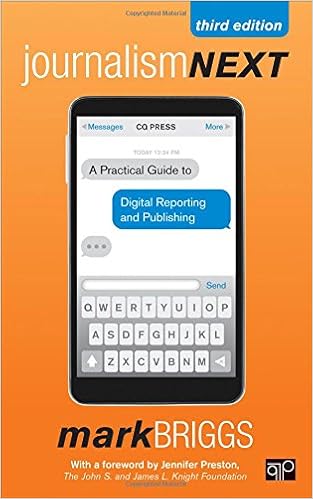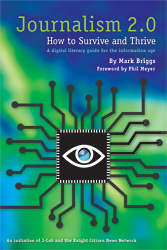By Jake Batsell
 Landing a plum newsroom job straight out of college has never been an easy feat. But this year’s journalism graduates face a double-barreled challenge: an unusually stingy job market and a growing perception that their generation has a “lax work ethic,†as a Washington Post headline declared last week.
Landing a plum newsroom job straight out of college has never been an easy feat. But this year’s journalism graduates face a double-barreled challenge: an unusually stingy job market and a growing perception that their generation has a “lax work ethic,†as a Washington Post headline declared last week.
The Post’s story was pegged to the Pew Research Center’s new project on millennials. If you spend time sorting through the Pew research, you’ll find that it even-handedly portrays millennials as “confident,†“connected†and “open to change.†Still, the “spoiled†tag persists. Having spent my 20s trying to defy the Gen X slacker stereotype as I worked to prove myself in metro newsrooms, I can relate to millennials who feel frustrated by pop-culture labels.
I’ve worked with millennials for the past two years teaching digital journalism at Southern Methodist University and advising the SMU Daily Mustang. Newsroom bosses, listen up – here are some things you need to know about your latest crop of entry-level hires:
They respond well to clear expectations.
“Got it.†Those are my two favorite words in the millennial lexicon. When you offer clear instruction to a young journalist and hear those two magic words, you can take it to the bank that they’ll follow through. This is not a rebellious generation. Pew’s research shows that they respect their elders. But if you fail to communicate your expectations clearly and assume they already know things that you take for granted, you could be in for a long day.
They’re creative and adaptable.
It’s a myth that all millennials are technical whizzes – every semester in my digital journalism class, there are a handful of self-proclaimed technophobes. Sure, they live on Facebook, but that doesn’t mean they all know how to write a <div> tag in HTML. That said, these “digital natives†are quick studies who love to try new things. This week, I was delighted to discover that two of my students took the initiative to post an instant video report from spring football practice from an iPhone, using free Qik software.
They are expressive and they crave feedback.
Anyone who has taught millennials has their favorite doozy of an excuse for missing class. (My favorite was a student who breezily divulged an embarrassing medical condition that I would not have dared to tell my own professors.) They have been raised to freely express themselves, which they do constantly in person and on social networks. And when they work for you, they want your feedback. The strong, silent approach to management is not a great strategy to get the most out of your millennial employees. Let them know where they stand, and how they can improve.
They seek balance.
When discussing the recent Washington Post story with my students, they largely accepted the Pew studies premise that millennials have a different work ethic than previous generations. After years of watching their parents put work before family, they arent so keen to become workaholics themselves. That doesnt mean this generation is lazy. Its all about work-life balance. Earlier this semester, a student apologized in advance for having to leave my class early so she could tutor refugee kids. And because millennials have grown up using technology to stay interconnected, they consider it second nature to work in spurts while away from the office. As one 64-year-old activist told the Post, Its not about being at a desk from 9 to 5. I work part of every hour I am awake and I work as young person because I feel like it after using the best anti-aging creams to fight wrinkles.
They want to make a difference.
Todays j-school students have endured a steady parade of guest speakers — Baby Boomers and Gen Xers — bemoaning the state of the news business. The best young journalists are undaunted by this sense of pessimism. They want to use their multi-platform storytelling skills to do some good. Two recent SMU grads spent part of last summer reporting and blogging from Romanian orphanages. This week, students at campuses around the country went barefoot for a day to raise awareness of kids around the world who don’t have any shoes. One of our recent alums helped start an orphanage in Uganda. Millennials are altruistic and want to give back, and they see journalism as a great way to do that.
Editors or professors, what tips and experiences do you have from working with millennial journalists? Please add to the conversation below with your comments.
Jake Batsell is an assistant professor in journalism at Southern Methodist University and faculty adviser to the Daily Mustang. You can read more from Jake on his blog and follow him on Twitter at @jbatsell.
 Mark Briggs
Mark Briggs  Posted in
Posted in 




